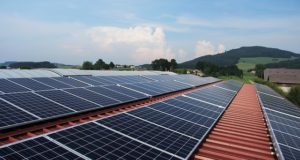 As research on alternative energy continues, hundreds of plants have been examined to determine whether they can provide an equivalent to corn for production of synthetic fuels. Algae have had a surprising impact on this research and development. Research has demonstrated that algae can provide a sustainable source of alternative energy and a replacement for fuel and oil.
As research on alternative energy continues, hundreds of plants have been examined to determine whether they can provide an equivalent to corn for production of synthetic fuels. Algae have had a surprising impact on this research and development. Research has demonstrated that algae can provide a sustainable source of alternative energy and a replacement for fuel and oil.
Algae are an easily replaceable resource that can be grown in a variety of locations unsuitable for agriculture or food crops. The only requirements are light, water and carbon dioxide. As a plant, algae produce their own food using a process called photosynthesis. Light and carbon dioxide fuel photosynthesis and allow algae to eat, grow and reproduce. These plants range in size from microscopic single-cell organisms to multi-cellular seaweeds that can grow to 65 feet in length, and are common to all regions of the planet.
Scientists are experimenting with a variety of algae strains to determine which are most effective for alternative energy use. The most important consideration is that algae can be grown anywhere. This means that agricultural land currently used to grow plants for ethanol can be freed up for food crops. Along with allowing the US to reduce dependence on petroleum products, the potential for growing more food crops means that food prices may be lowered as well.
Currently, research is focusing on bioengineering a specific strain of marine algae for optimal production. Improving photosynthetic output and the plants’ biomass will yield larger amounts of oil intended for refinement into products such as biodiesel, plus allow the plants to yield a higher solar energy output. The findings will guide future development of algae energy and oil extraction facilities.
Algae Oil, or Oilgae
In order to be used for oil and gasoline production, algae cells must first be split open or “cracked.” Extraction can be performed by mechanical or chemical means, each of which has potential hazards. Several other methods have been researched—enzymatic extraction and osmotic shock–but these are not as commonly used for the extraction process.
A single-step extraction process is currently under development by OriginOil. Their quantum fracturing process makes use of electromagnetic pulses and pH modification to handle all steps of the harvesting and extraction process, including separating the resulting products into wastes and oil. The company is currently striving to refine and reduce the costs of this efficient procedure.
Once the algae are cracked using mechanical or chemical means, the resulting products can be processed and turned into biogases and oil at existing petroleum refinement facilities. This reduces the need to develop new infrastructure to handle this new form of fuel, which provides economic benefits on many levels. Current shipping methods—fuel tankers and trucks—can be used to deliver these products after refinement.
ExxonMobil has a large interest in this new form of energy and are moving away from their former petroleum-only stance. They are investing heavily in constructing chemical extraction facilities that will work with algae to provide fuel. In 2010, ExxonMobil began construction of facilities in Singapore, and plans are underway to build additional facilities in other countries. In addition to ExxonMobil, Shell Corporation has brought an algae ethylene cracker online in order to begin accessing this new source of fuel.
Asian countries are ahead of the curve with facilities underway in Singapore as well as in China, South Korea, Thailand, and India. The Chinese government estimates it will be able to reduce its dependence on energy-related imports by one-third with the use of algae-related products. The United States is also developing and producing oil from algae sources, but current production has proven to be cost-prohibitive. As research improves and scientists continue to refine the requirements for optimal algae growth and production, costs will drop and this will become an economic choice for US consumers who want an alternative to gasoline and oil refined from foreign imports.
Algae Energy
Along with algae’s usefulness in developing a less-expensive source of fuel, algae has been used to produce energy. UK researchers are working on methods to derive solar energy from algae’s photosynthetic properties. To date, the team has utilized thin layers of algae to collect solar energy and power an electronic clock. Paolo Bambelli, a member of the research team, lays out extensive benefits, such as lower costs, self-replication, and self-repair, to the use of algae as a biological version of solar panels. This use of algae will provide thin bio-panels that can be sized to any surface at a substantially reduced cost as compared to traditional solar panels.
Algae Hydrogen
Certain strains of algae can be forced to split water into its component parts of hydrogen and oxygen. The resulting hydrogen can be collected and stored in fuel cells, which can be utilized for various energy-related needs, or it can be used to run power plants. Researchers at the University of California at Berkeley are working to refine this process. After experimenting with a small bioreactor that uses algae as its power source, they established a set of parameters for the amount of light that algae needs to produce a usable amount of hydrogen. Currently, the team is working to breed algae strains that meet their requirements. They estimate the higher yield of hydrogen will allow algae bioreactors to be a cost-effective replacement for fossil fuel reactors.
 Off The Grid News Better Ideas For Off The Grid Living
Off The Grid News Better Ideas For Off The Grid Living



